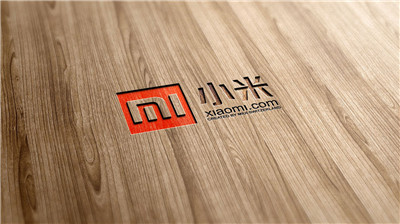(单词翻译:单击)
Ratan Tata, the Indian industrialist, has invested an undisclosed sum in China’s biggest smartphone maker, Xiaomi, giving a boost to the company’s Indian expansion plans.
印度实业家拉丹•塔塔(Ratan Tata)向中国最大智能手机制造商小米(Xiaomi)进行了一笔金额不详的投资,此举对小米的印度扩张计划是个提振。
“India is our biggest market outside of mainland China and also an extremely important one. Our goal is to become number one in the next three to five years and we are keen on partnerships here,” said Bin Lin, Xiaomi co-founder and president, in a statement.
小米联合创始人、总裁林斌在一份声明中表示:“印度是我们在中国内地以外最大的市场,也是一个极其重要的市场。我们的目标是在未来3至5年中成为老大,我们热衷于在那里建立合作伙伴关系。”

Since his retirement in 2012 as chairman of industrial conglomerate the Tata group, Mr Tata has become an active venture investor in Indian e-commerce start-ups. Mr Tata, whose current title is chairman emeritus of Tata, made the investment with his personal wealth and the stake will be held independent of the group.
2012年塔塔从综合产业集团塔塔集团(Tata Group)董事长职位退休以后,成为了一名风险投资者,积极投资于印度的电商初创企业。他现在的头衔是塔塔集团荣誉董事长,他对小米的投资用的是私人财富,所购得的股份将独立于塔塔集团持有。
The announcement on Saturday follows a visit to India by Xiaomi last week. During the visit, former Google executive Hugo Barra, now Xiaomi’s vice-president for international operations, unveiled the company’s newest handset, the Mi 4i, which will sell for INR12,999 ($204).
上述消息于上周六宣布,在那之前,小米上周访问了印度。在那次访问中,谷歌(Google)前高管、现任小米国际业务副总裁的雨果•巴拉(Hugo Barra),发布了该公司最新款手机Mi 4i,预定售价为12999印度卢比(合204美元)。
It is the first phone that Xiaomi has launched outside China. Localised versions of the Mi 4i will also be begin selling in Malaysia, Indonesia, Singapore, Taiwan and Hong Kong next month.
这是小米在海外发布的首款手机。下个月,马来西亚、印尼、新加坡、台湾和香港也将开售本地化版本的Mi 4i。
Xiaomi controlled 4 per cent of India’s smartphone market in the fourth quarter last year, according to market researcher IDC. Market leader Samsung controlled 22 per cent, followed by Indian vendors Micromax, Intex and Lava. Smartphone penetration in India trails that of China, leaving room for fast growth.
市场研究公司IDC数据显示,去年第四季度,小米在印度智能手机市场占有4%的份额。印度市场领导者三星(Samsung)占有22%的份额,之后是印度供应商Micromax、Intex和Lava。印度的智能手机普及率低于中国,这为快速增长留下了空间。
Xiaomi raised $1.1bn late last year in a venture capital funding round that valued the company at $45bn. The company has used a viral marketing campaign to sell its high-spec, low-cost smartphones and vault over more established manufacturers to become the market leader in China.
小米去年晚些时候在一轮风投融资中筹得11亿美元,使该公司的估值达到450亿美元。该公司一直使用病毒式营销来出售自己的高配置、低价格的智能手机,一跃超过一些更老牌的制造商,坐上了中国市场头号交椅。
The company has also branched out into online music and internet-enabled set-top video boxes that act as a substitute for cable TV.
该公司还将业务扩展至在线音乐和可取代有线电视的互联网机顶盒。
Xiaomi’s expansion plans in India hit a snag in December when the Delhi High Court banned the company from selling smartphones pending a further hearing on alleged patent infringement against Swedish technology group Ericsson. The ban has since ended.
去年12月,小米在印度的扩张计划遇到了难题。当时德里高院(Delhi High Court)对小米智能手机下达了禁售令,等待其就有关小米侵犯瑞典科技公司爱立信(Ericsson)专利的指控进行进一步庭审。该禁令后来被撤销。


